Wentworth MP, former diplomat Dave Sharma is not afraid to speak his mind, writes Sharri Markson.
The biggest revelation from lunch with Liberal MP Dave Sharma is how opinionated the former diplomat is.
For a conflict-averse career public servant, whose 20-year trajectory was forged on bipartisan relations and a conciliatory persona, Sharma’s outspoken nature is an intriguing discovery.
Name a topic and, more likely than not, he will have a candid view.
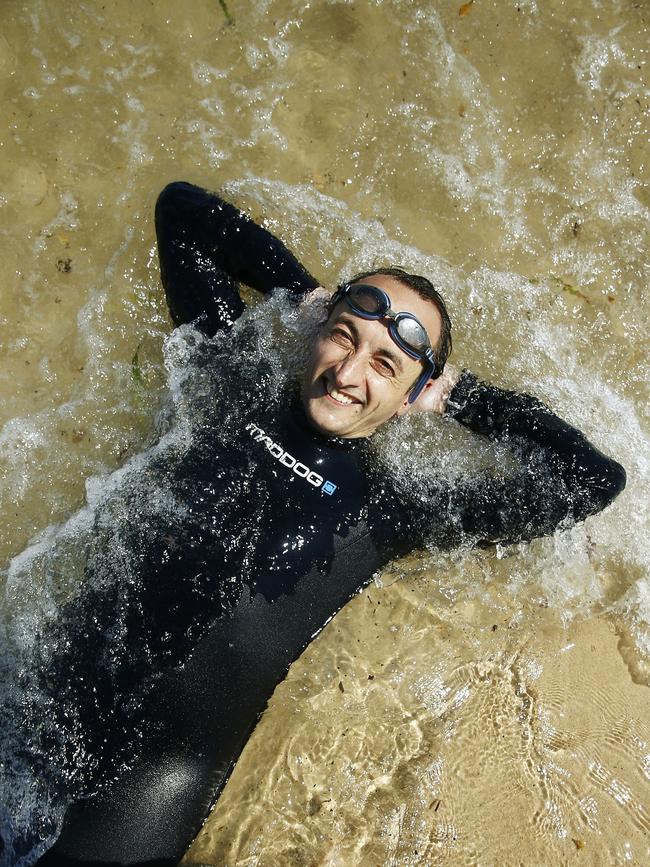
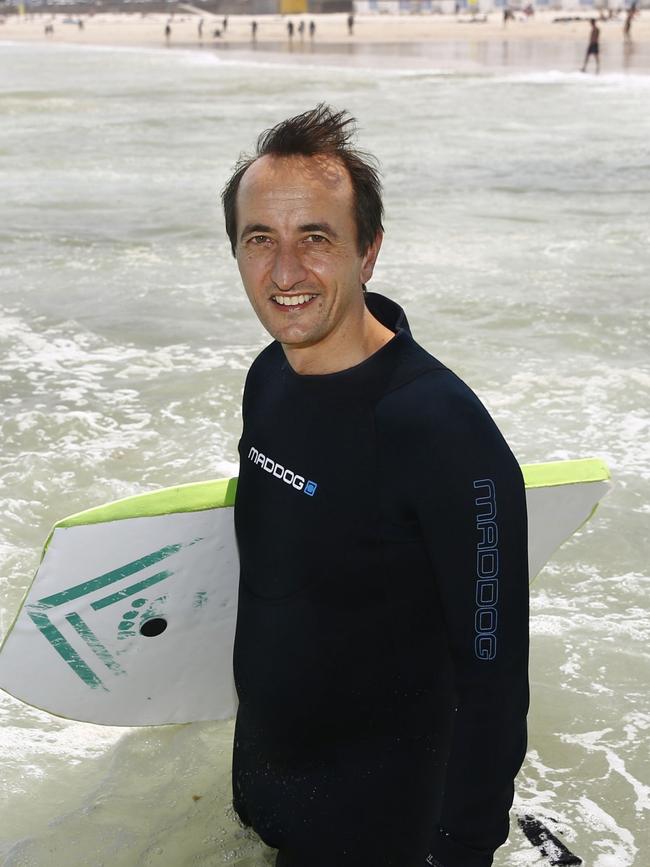
For example, Sharma thinks Australia may need to take the dramatic step to stop sharing intelligence with the UK if it’s vulnerable to foreign interference after its Huawei deal; he agrees with Anthony Albanese’s mission to hit net zero emissions by 2050; and as Israeli Ambassador he found the ABC’s coverage of Israel biased, saying they rammed a single narrative down the throat of viewers.
Sharma, 44, is a changed man when he sits down for lunch at Indigo in Double Bay, 10 months into his role as Wentworth MP.
He learnt the hard way that diplomacy has its disadvantages when he lost the 2018 Wentworth by-election to a forthright Prof. Kerryn Phelps in the protest vote that followed former Prime Minister Malcolm Turnbull’s divisive exit from politics.
This electorate was uncertain about electing someone who repeated party lines and didn’t have the autonomy to post his own tweet without permission from Liberal HQ.
Yes, it’s true. He needed permission to simply fire off a tweet.
These days, not only does he refuse to adhere to the Government’s talking points emailed to MPs each morning by the Prime Minister’s office, but some days he doesn’t even read them.
When I point out to Sharma how far he has come in a year-and-a half, he laughs and says he’s still not as opinionated as his feisty lawyer wife, Rachel Lord.
“Rachel is very strong. She’s probably a more natural politician than I am. I’m still quite a diplomat by nature. Rachel is a bit more forceful in expressing her views than me,” he says.
One area where Sharma is exercising his voice is on the topic of climate change where he is
emerging as a crusader, alongside colleagues Trent Zimmerman, Jason Falinski and Tim Wilson.
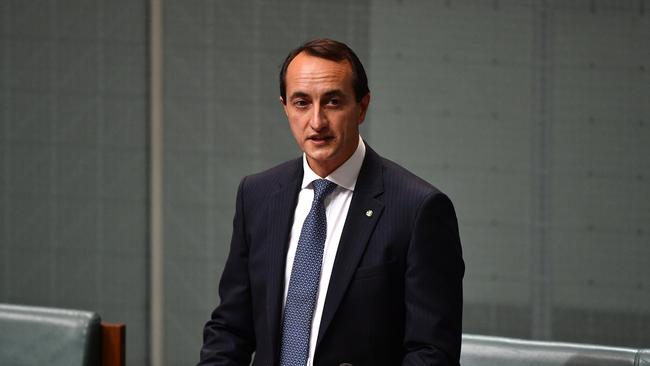
“I’ve got strong views on this issue and I do make them known,” he says.
While the Prime Minister and other senior ministers have ridiculed Anthony Albanese’s push for net zero carbon emissions by 2050, Sharma says it’s a goal he supports.
But he disagrees with Malcolm Turnbull’s position that Australia is on the frontline of the climate crisis and, therefore, should lead the world in taking action.
“I’d like to see us get to net zero and everyone who has signed up to the Paris agreement has,
basically, recognised that the world needs to be at, or towards, net zero in the second half of the century,” he says.
“The quest to get to net zero is a global quest. If Australia does it and the rest of the world doesn’t, then it’s no good. And if the rest of the world does it and Australia doesn’t, that’s no good.”
For a greener future, Sharma says the discussion needs to move beyond the electricity sector, which accounts for about a third of Australia’s emissions, and we need to lower carbon output in other areas like transport, agriculture and industrial emissions.
In this space, Sharma is pushing his own government to remove the luxury car tax from electric vehicles.
“I think we need to be doing better on electric vehicles. I’d love to see us drop the luxury car tax on electric vehicles. If we can get more electric vehicles on the road it will help us to lower our emissions,” he says.
In the energy sector, Sharma supports the continued use of coal-fired power but he also backs
introducing nuclear power, a reliable and clean baseload power, while opening up our gas reserves for domestic use.
“France is nuclear, Britain is nuclear, Canada is nuclear. There are a lot of countries that we associate with, and identity with, that are already moving this way,” he said.
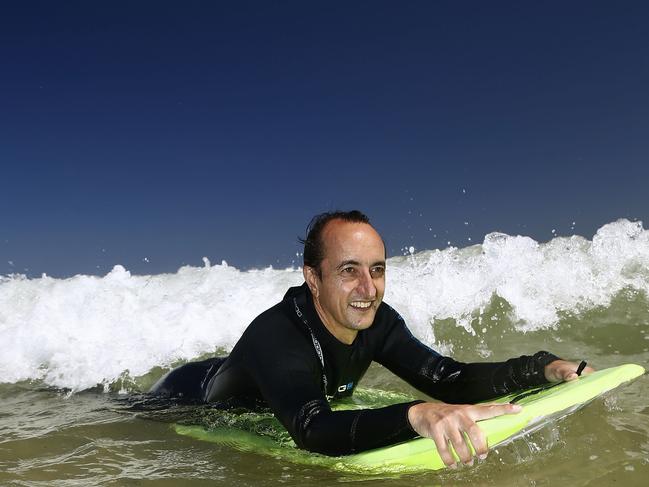
“We shouldn’t be having one hand tied behind our back, just as we shouldn’t with gas. It’s about 50 per cent cleaner than coal and we’ve got plentiful gas supplies, but we’re not getting the domestic advantage of it. They’re frozen, they’re off limits.”
While Warringah Independent MP Zali Steggall has called for a conscience vote in Parliament on climate action, Sharma does not see it as an issue of conscience.
“I think this is part of the problem with climate change like it’s become a religious and cultural and values issue, when it’s really a question of economic policy, public policy and good management,” he said.
“It’s not something like abortion or marriage equality or same sex relationships, which go to the heart of peoples’ values.”
Was climate change an issue Sharma has always been passionate about, or has he become
outspoken simply to cement his position in Wentworth, which is now a marginal seat?
“I’ve always been concerned with Australia’s security and prosperity and our future, and a changing climate poses risks to our future,” he said.
“I’ve always taken an interest in it, and been interested in it, as part of a broader set of challenges to our future. It’s also obviously a big issue in Wentworth.”
It’s why Sharma became heavily involved with the Bondi-based Ocean Lovers Festival which was due to run until March 22 but which was cancelled on Sunday due to Covid-19 and the government’s ban on gatherings of more than 500 people.
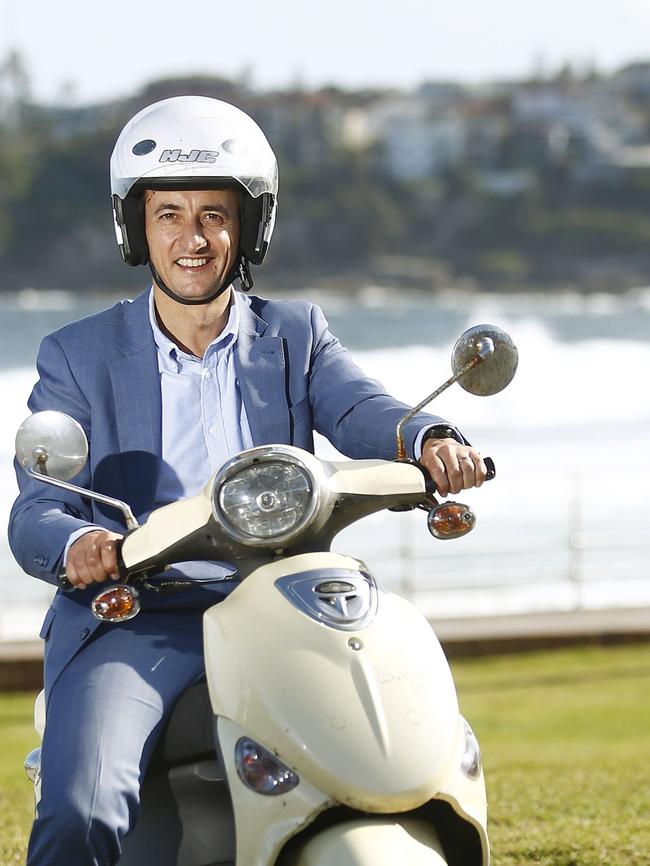
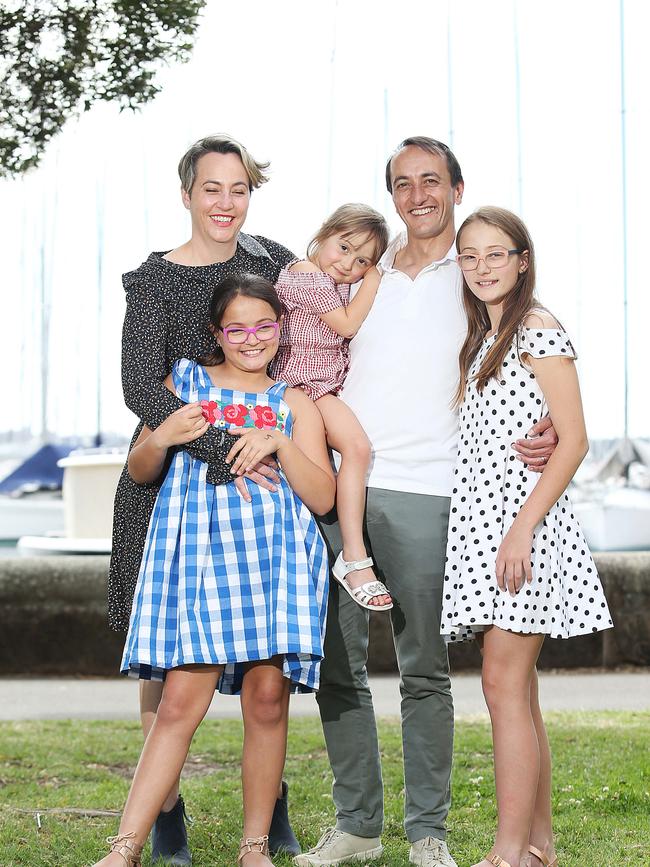
In launching it, he spoke about the human impact on climate and the need to care for our planet.
Whenever he can, he also, often, zips around the electorate on his more environmentally-friendly Bolwell scooter, rather than taking a car.
Sharma’s view on climate positions him in the moderate faction of the Liberal Party. However, he describes his outlook on national security as “hawkish” and more aligned with conservatives, like Peter Dutton and Andrew Hastie.
One of his closest friends in parliament is Treasurer Josh Frydenberg, who Sharma has known since 1999 when he moved to Canberra to work in the Department of Foreign Affairs and Trade, while Frydenberg was a ministerial adviser.
In the national security space, Sharma is critical of the British Government’s decision to allow the Chinese company Huawei’s involvement with its 5G contract, after Australia and the United States rejected its bid on national security grounds.
Sharma said Australia will be “assuring ourselves” that the UK’s systems are as robust as they claim.
If not, he says, Australia would have to reconsider whether we continue to share intelligence with the UK at all. This would be a major break in our Five Eyes intelligence sharing arrangement.
“The 5G network is basically going to be the backbone of a modern economy,” he says.
“Because of our unique intelligence-sharing relationship with them, if it means if the UK system is vulnerable to compromise, well, ipso facto, so is ours.
“So I think we will want to make sure it’s robust. We’ll be open to being convinced by their
assurances, but we’ll want to verify them ourselves.
“I would hope that this UK decision doesn’t mean that we have to begin to limit our co-operation with the UK but if we’re concerned enough, well, then that’s an option.”
Having served as Israeli ambassador, Sharma, who was born in Canada, has more of a global outlook than many MPs who are largely focused on domestic issues.
In February, when most pundits were backing Bernie Sanders, Peter Buttigieg or Mike Bloomberg to be the Democratic presidential nominee, Sharma was adamant Joe Biden was the only one who could beat Trump.
Biden’s comeback in Super Tuesday came as a shock to even seasoned United States political
commentators, but it was something Sharma picked.
“I think the most credible opposition to Trump would be Joe Biden. If the Democrats want to win the election, they should be picking Joe Biden,” he said in late February.
After his role in Israel, where Sharma spent time with the Israeli President and Prime Minister, his view is that Donald Trump and Benjamin Netanyahu’s recently-announced peace deal was a “missed opportunity”.
He says a lasting deal for peace could have been negotiated between the US, Israel, Jordan and Egypt. “There is scope because of the change of configuration of the Middle East for a peace deal to be done in a way that hasn’t been done before, mainly because of the growing convergence and interest between Israel and the Sunni Arab states,” he says.
“They’ve got an interest in working together and that’s a potentially useful coalition that would help deliver a peace deal because the Arab states can kind of guarantee the Palestinians behaviour in a two-state scenario.
“They’d have to reign in the Palestinians, basically.”
He thinks a workable plan would need to have the 1967 border as a starting point, the Holy sites accessible to everyone and no large-scale right of return for Palestinians, which he says is “normal after any conflict.”
I ask him how, as Israeli ambassador, he viewed the ABC’s coverage of the region and he says he was “concerned” by its anti-Israel bias in the conflict with the Palestinians.
Unlike most politicians, Sharma is not afraid to take on the ABC.
Media backlash to a recent tweet where he criticised the ABC for pursuing the Federal Government in court over raids to its headquarters has not silenced him.
“I think they tend to give a one-dimensional picture of what’s going on in that part of the world,” he said.
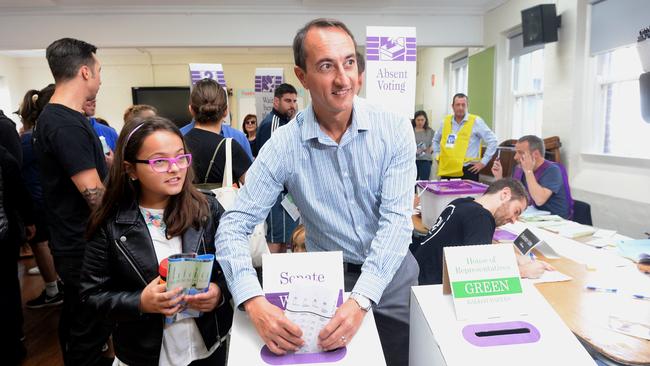
“They tend to focus on a particular story and a particular narrative at the expense of others.
“The art of news coverage should be to give your viewership and your readership a whole lot of different perspectives and let them decide the truth and decide their one point of view whereas the ABC, particularly in its coverage there, tends to ram one narrative down the throats of the people who watch it or listen to it.”
“I think any publicly funded body has a higher degree of responsibility to taxpayers than a privately funded body,” he said.
“Sometimes the way the ABC conducts itself suggests they think they are beyond reproach, beyond criticism, and I don’t think it’s healthy in a democracy with competing ideas.”
Sharma says we should take a leaf out of Israel’s book when dealing with coronavirus.
Under the threat of war, Israelis go about their daily business and get on with life.
He says it’s an attitude we should adopt here, warning “we want to make sure the cure is not worse than the disease”.
Sharma thinks it’s “almost certain the global economy will be contracting this quarter”.
“If we manage this right, then this might be a blip in growth but it shouldn’t effect the overall global economic trajectory,” he says.
I’ve always been concerned with Australia’s security and prosperity and our future
In terms of community spread of coronavirus, Sharma said it’s likely it will be endemic throughout the Australian population.
“We need to avoid a spike in this where everyone has it at once because this will overwhelm our health system,” he says.
“People still like to think we can completely cut ourselves off from it. I don’t think that’s possible, so it’s managing the rate of transmission so we can understand the disease better and make sure its progress through the population is staggered and incremental so we can manage it through our existing framework.”
Life as a politician is not without its challenges, particularly for the spouse left at home to shoulder the burden of the household.
Sharma has uprooted his family from Turramurra on Sydney’s upper north shore to live in
Paddington. Adding to the juggle is Rachel’s return in January to full-time work at the NSW
Department of Premier and Cabinet.
Sharma is away from his young family for almost half the year in Canberra when parliament sits, leaving Rachel to look after their three children, Daphne, 6, Estella, 11, and Diana, 13, on her own.
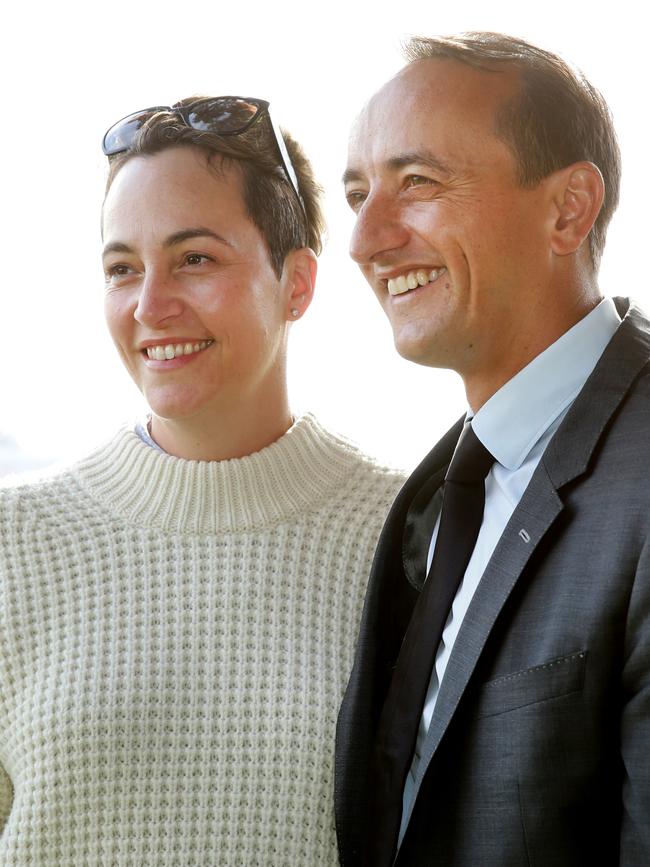
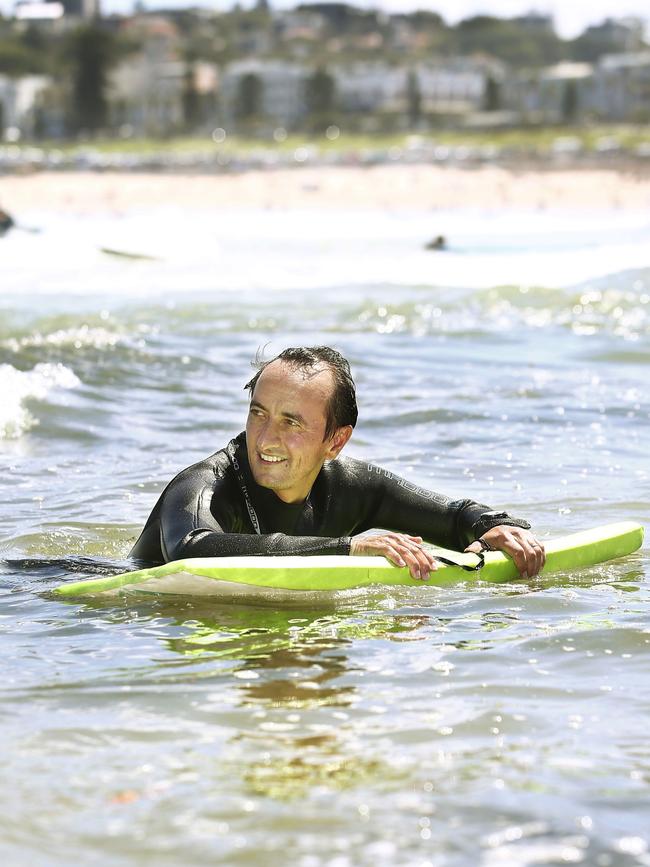
The arrangement has already had its heartaches.
On the second week of the parliamentary sitting year, Sharma’s youngest daughter broke her arm and the MP was not allowed to fly home to be with his little one in hospital. The government’s slim two-seat majority means that if two MPs are absent, the government could risk losing a vote to the Labor Party in the House of Representatives.
“I asked the question but I knew what the answer was going to be,” Sharma says.
“I couldn’t leave Canberra because parliament was sitting and we’ve only got a two-seat majority.
“She broke her arm, she wasn’t in danger, I knew she was going to be OK, but it breaks your heart because you’d like to be there with her, you’d like to check she’s all right, I’d like to help my wife.
“That’s when you really notice (being away) when things like that happen – or (even) happy
occasions. Generally speaking, we’re coping well.”
It’s a life the family will have to get used to – and one they knew was in their future.
Sharma says he has a “political soul” and his entry into politics has been on the cards for a long time.
Having suffered trauma in his childhood, with his mum dying from breast cancer when he was 12, Sharma does not view the purpose of life as happiness, but rather as having meaning and purpose and leaving a tangible legacy.
He said he realised as a diplomat it’s the elected representatives who hold the power and make the decisions.
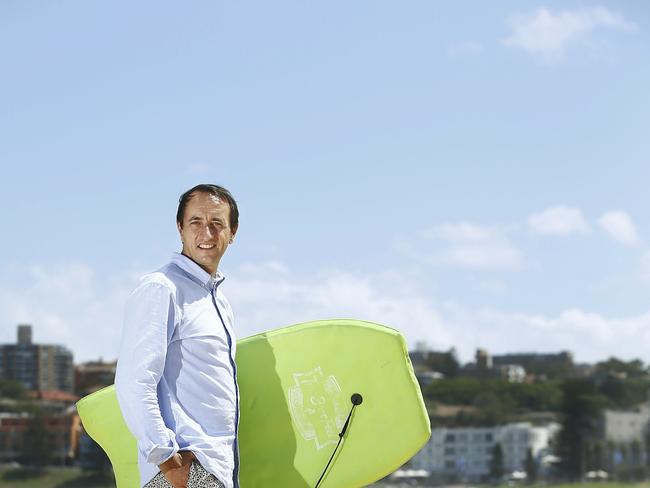
“I think, for me, anything to do with Australia’s place in the world and our security at home and abroad is important, and then anything to do with our economic prosperity — so an economic portfolio, national affairs, foreign affairs, security or defence portfolio, I’d be really interested in.”
But he feels his political future is to a large degree a matter of luck and chance and timing.
“I’m ambitious to make as big a contribution as I can. I’d love to be in cabinet, I hope I can get there.
Beyond that it’s a crapshoot.”
